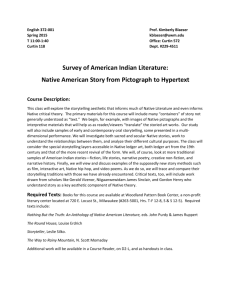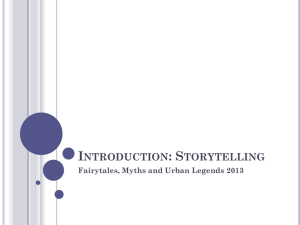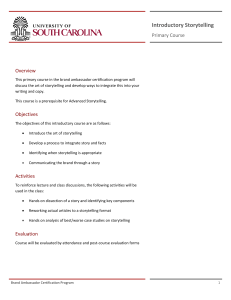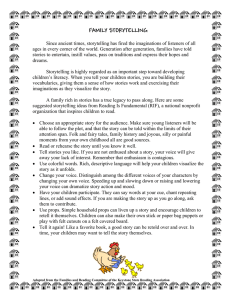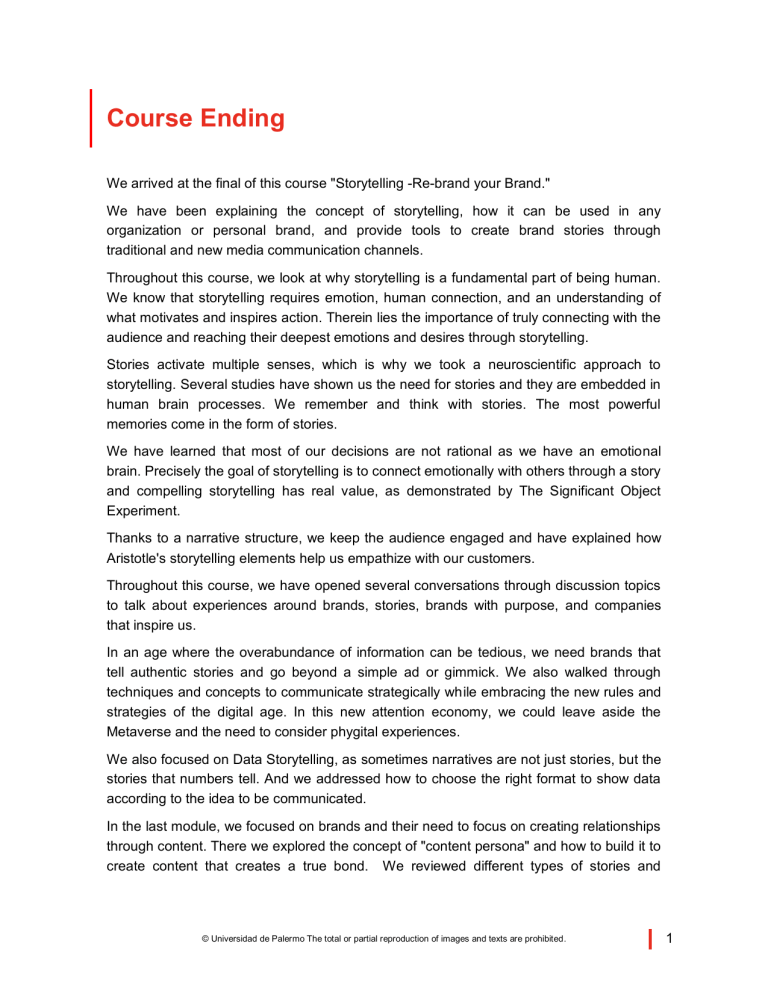
Course Ending We arrived at the final of this course "Storytelling -Re-brand your Brand." We have been explaining the concept of storytelling, how it can be used in any organization or personal brand, and provide tools to create brand stories through traditional and new media communication channels. Throughout this course, we look at why storytelling is a fundamental part of being human. We know that storytelling requires emotion, human connection, and an understanding of what motivates and inspires action. Therein lies the importance of truly connecting with the audience and reaching their deepest emotions and desires through storytelling. Stories activate multiple senses, which is why we took a neuroscientific approach to storytelling. Several studies have shown us the need for stories and they are embedded in human brain processes. We remember and think with stories. The most powerful memories come in the form of stories. We have learned that most of our decisions are not rational as we have an emotional brain. Precisely the goal of storytelling is to connect emotionally with others through a story and compelling storytelling has real value, as demonstrated by The Significant Object Experiment. Thanks to a narrative structure, we keep the audience engaged and have explained how Aristotle's storytelling elements help us empathize with our customers. Throughout this course, we have opened several conversations through discussion topics to talk about experiences around brands, stories, brands with purpose, and companies that inspire us. In an age where the overabundance of information can be tedious, we need brands that tell authentic stories and go beyond a simple ad or gimmick. We also walked through techniques and concepts to communicate strategically while embracing the new rules and strategies of the digital age. In this new attention economy, we could leave aside the Metaverse and the need to consider phygital experiences. We also focused on Data Storytelling, as sometimes narratives are not just stories, but the stories that numbers tell. And we addressed how to choose the right format to show data according to the idea to be communicated. In the last module, we focused on brands and their need to focus on creating relationships through content. There we explored the concept of "content persona" and how to build it to create content that creates a true bond. We reviewed different types of stories and © Universidad de Palermo The total or partial reproduction of images and texts are prohibited. © Universidad de Palermo The total or partial reproduction of images and texts is prohibited. 1 narratives that apply to brands and conclude by revealing the impact that technologies have on customer relationships. We explored The Hero Journey as a narrative archetype and how to apply its core elements to make your brand customer a hero. We recognized how your brand story should be foundational to your content strategy and also used across the entire organization. This is the final part of this journey; It's THE END, but also THE BEGINNING of something much bigger than ourselves. So, what's next? Now you have the opportunity to apply a storytelling method to a practical project. I hope you enjoyed this course. It's time to go back to the real world and apply all of your knowledge to create a great Brand Story! © Universidad de Palermo The total or partial reproduction of images and texts are prohibited. © Universidad de Palermo The total or partial reproduction of images and texts is prohibited. 2
